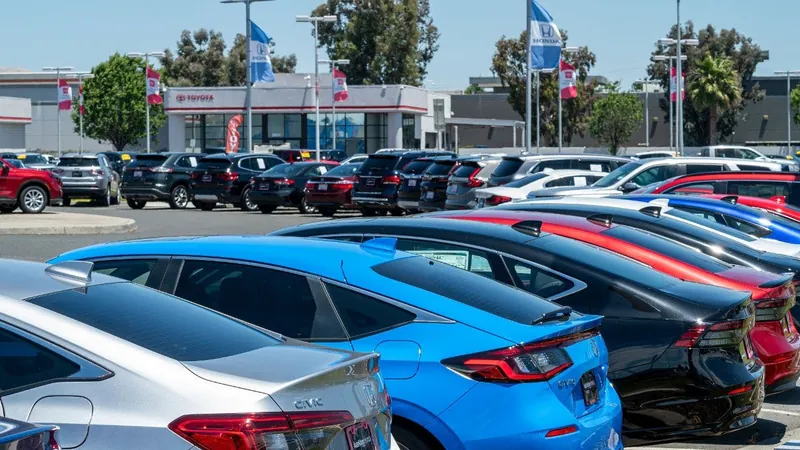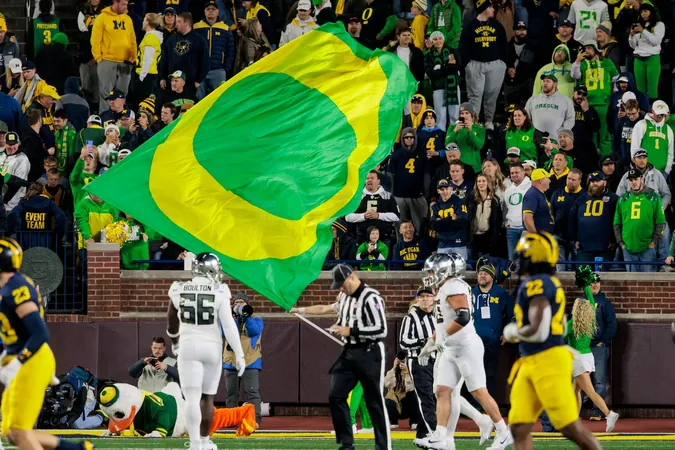
Car Dealerships Brace for Impact: Port Strike Could Spark Auto Industry Chaos
2024-09-26
Author: Ting
Overview
As the threat of a work stoppage looms over dockworkers at major East and Gulf coast ports, car dealerships nationwide are anxiously preparing for potential repercussions. Experts are warning that an extended port strike could significantly disrupt the already fragile auto supply chain.
Union Negotiations
The International Longshoremen's Association has announced that its 45,000 dockworkers are at the bargaining table, negotiating new contracts across 36 U.S. ports essential for a staggering half of the nation’s seaborne imports. With the October 1 deadline fast approaching, union members are poised to strike if an agreement isn't reached, prompting car industry professionals to sound alarm bells about the possible fallout.
Advice for Car Owners
"The time to act is now," said Brian Moody, Executive Editor at Autotrader. He advises car owners with any pending repairs or recalls: “Make the appointment and get to your dealership today if possible.”
Impact on Vehicle Prices
Economic analysts predict that a port strike could lead to soaring vehicle prices for consumers, making it increasingly difficult to acquire both new and used cars. Tom Maoli, owner of Celebrity Motor Car Co. in New Jersey, highlighted the stark difference between pre-pandemic inventory levels and the current state of affairs. "Before COVID, we usually had three to six months' worth of inventory on hand," he explained. "Now, we’re looking at only 30 to 45 days' worth. If the ports shut down, we’ll burn through this stock in just one month.”
Challenges with Domestic Production
Even for cars manufactured domestically, a sizable portion of parts such as transmissions or wheels often originates from overseas suppliers. "Even if 95% of the car is made in the U.S., dealerships will still face delays waiting for parts from abroad," Moody emphasized.
Shift to Used Vehicles
With new car inventories shrinking, dealers like Maoli may shift focus towards used vehicles, but this too comes with consequences. The combination of limited supply and increased demand is likely to send prices soaring. “If you're thinking of postponing a purchase or repair, you might soon regret that decision,” Maoli warned. “If parts are backordered, you could be looking at a wait of 30 to 90 days just to get pretty standard replacement parts.”
Impact on Repair Shops
Moreover, the ripple effects extend beyond just the immediate sale or repair of cars. As inventory dwindles, repair shops may struggle to obtain the essential components needed for routine maintenance. Quoting Moody, "Even reliable cars need upkeep, and if the parts aren’t available, there's little anyone can do."
Dealer Preparations
To prepare for possible shortages, Maoli has begun ordering extra parts for his dealerships. Yet, this isn't a unique strategy; many dealers are taking similar steps, which may quickly deplete national supplies.
Conclusion
In conclusion, the impending port strike represents a warning signal for potential car buyers and current vehicle owners alike. With costs set to rise and service delays on the horizon, now may be the time to address automotive needs before it's too late. Don't get caught in the rush—act before the storm hits!



 Brasil (PT)
Brasil (PT)
 Canada (EN)
Canada (EN)
 Chile (ES)
Chile (ES)
 España (ES)
España (ES)
 France (FR)
France (FR)
 Hong Kong (EN)
Hong Kong (EN)
 Italia (IT)
Italia (IT)
 日本 (JA)
日本 (JA)
 Magyarország (HU)
Magyarország (HU)
 Norge (NO)
Norge (NO)
 Polska (PL)
Polska (PL)
 Schweiz (DE)
Schweiz (DE)
 Singapore (EN)
Singapore (EN)
 Sverige (SV)
Sverige (SV)
 Suomi (FI)
Suomi (FI)
 Türkiye (TR)
Türkiye (TR)